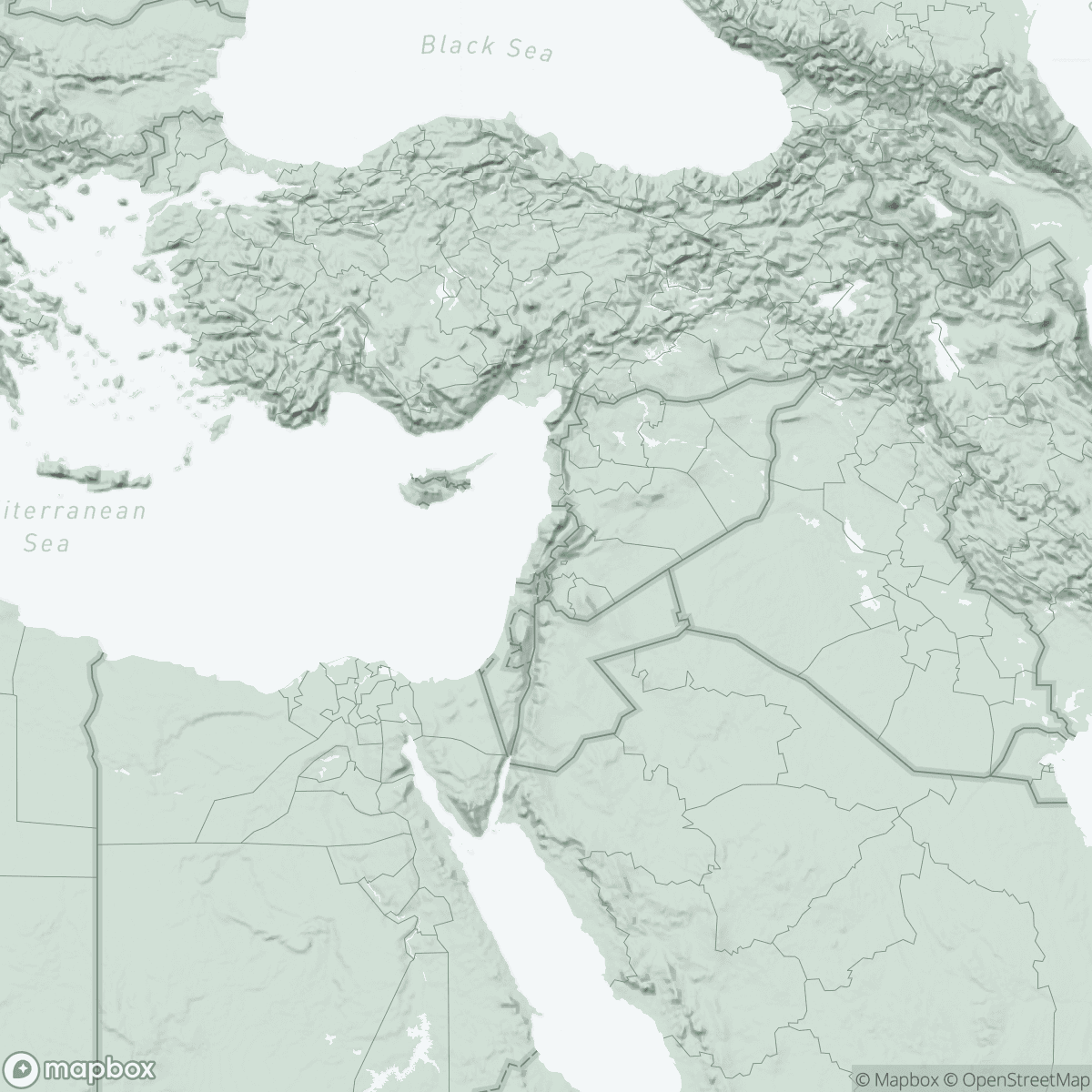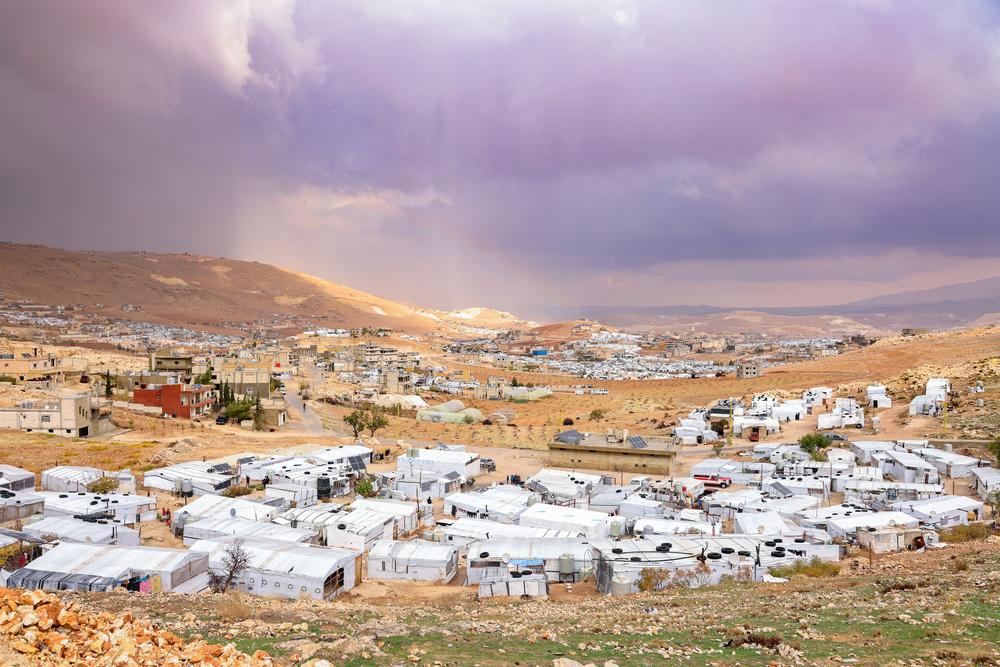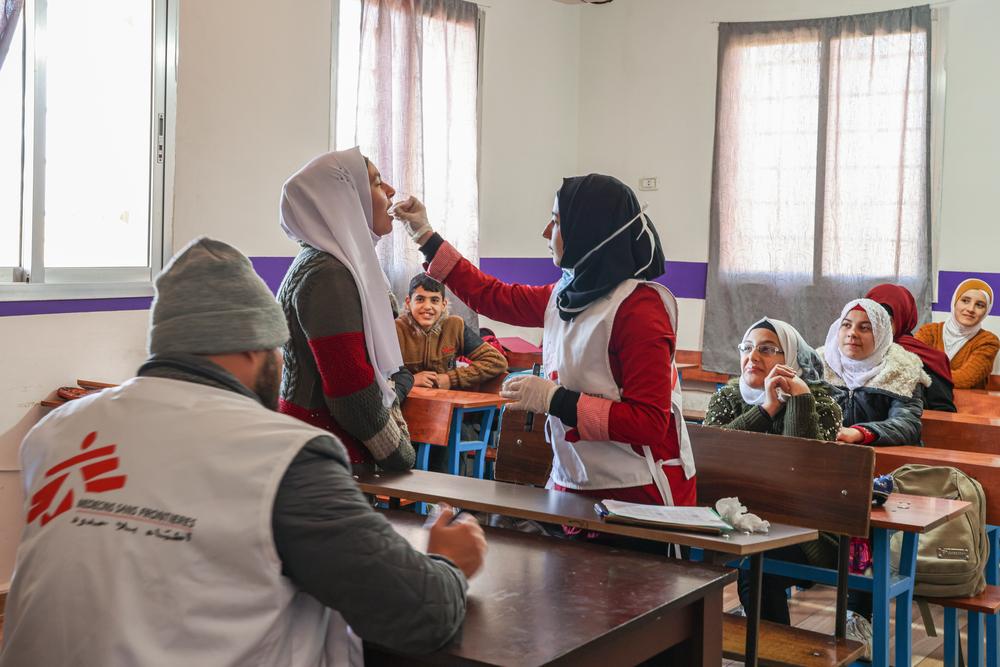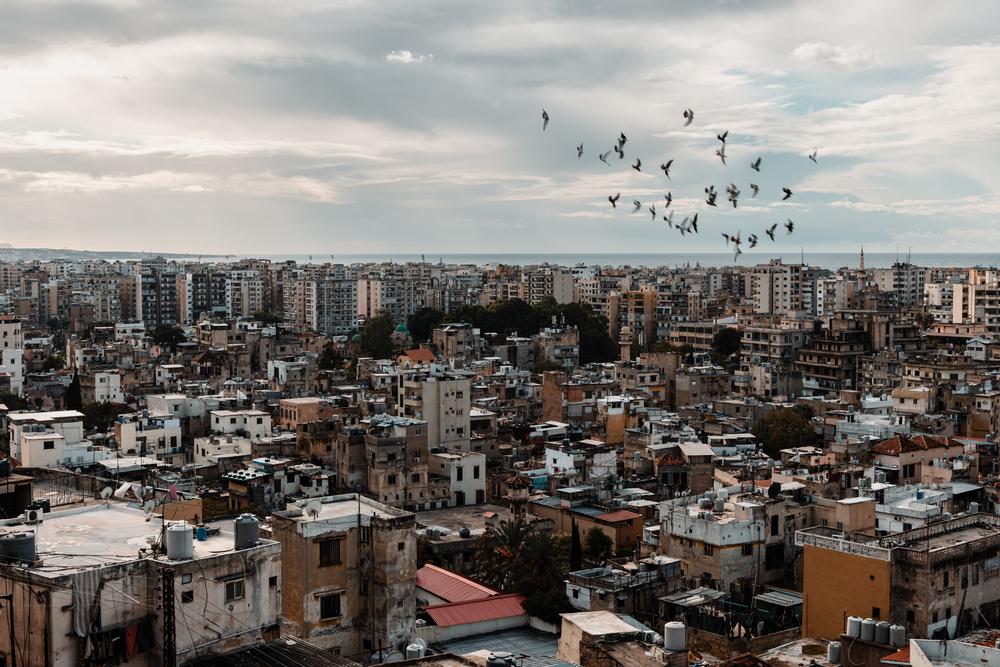
In 1 click, help us spread this information :
Lebanon is now in its fourth year of a deep economic, political and social crisis. This multifaceted crisis is pushing the country’s population to the brink, with over 80 per cent of people living in multidimensional poverty and 1.4 million people facing acute food insecurity. The crisis is severely impacting healthcare services, as the already frail public health system struggles to respond to the growing needs.
Over 30 per cent of households' report being unable to access healthcare, and essential medicines are increasingly scarce.
Lebanon is also home to 1.5 million Syrian refugees[4], the world’s highest per capita refugee population, Palestinian refugees[5] and migrant workers[6]. These communities faced difficulties before the crisis, but the ongoing turmoil has worsened their situation.
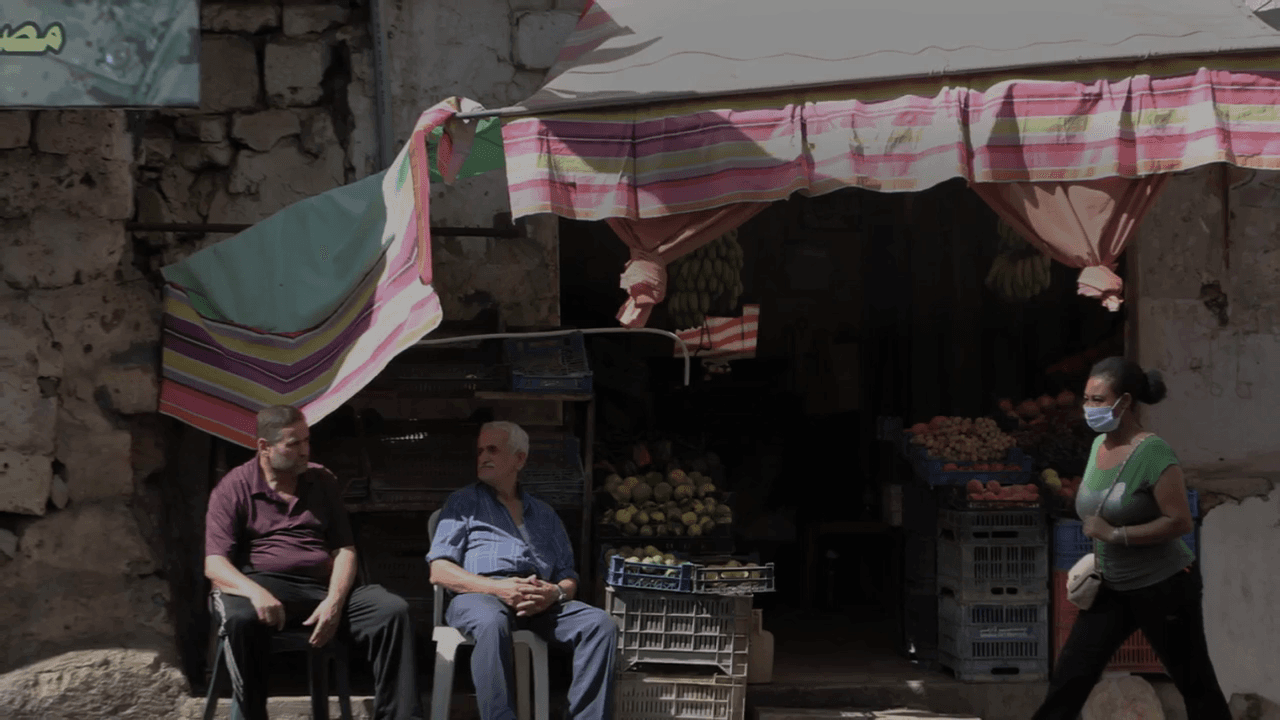
Four Years of Unraveling: Exploring the Depths of Lebanon's Protracted Economic Crisis
1. What is the current situation?
As of January 2023, an estimated four million people in Lebanon are in need of humanitarian assistance.[7]
In 2019, Lebanon began experiencing the initial signs of economic decline, marked by increasing unemployment, inflation and deteriorating infrastructure.
In subsequent years, the economic crisis has continued to worsen, with the country’s annual inflation reaching 190 per cent in February 2023.
The minimum amount of money required to cover essential needs has risen by a staggering 19,000 percent since 2019.
This dramatic increase in inflation has severely affected people’s ability to afford basic goods and services, including food and healthcare leaving more than 40 per cent of children and women grappling with anaemia, while stunted growth is on the rise. [8]
This is further complicated by the persistent political deadlock in the country, stemming from Lebanon’s social and political landscape.
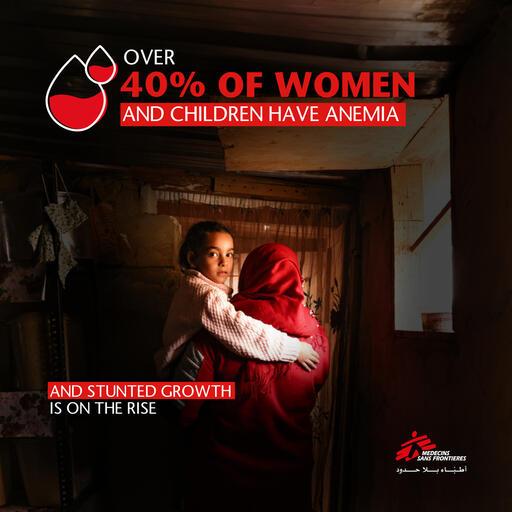
A mother holding her daughter who just recovered from cholera in Arsal, Bekaa Valley, Lebanon. Taken on November 24th, 2022 ©Carmen Yahchouchi/MSF
2. What are the impacts of the crisis on healthcare services in Lebanon?
Lebanon’s healthcare system is predominantly privatised. Although a public health system does exist, it remains fragile and with limited capacity due to years of neglect and lack of proper funding, making it categorically inadequate to handle the increasing healthcare demands. As a result, a growing number of individuals are relying mainly on humanitarian aid for medical care. Importantly, 33 per cent of households[9] report being unable to access healthcare, and more than half of the population struggles to obtain essential medicines. In the northeast regions of Arsal and Hermel, where Médecins Sans Frontières (MSF) offers primary healthcare, the teams have observed a 67 per cent increase in the influx of non-communicable disease patients seeking care in our clinics, rising from 2,890 in 2019 to 4,828 patients by early 2023.
MSF teams have observed a concerning trend where some patients are choosing to forgo seeking medical care altogether because they cannot afford it, particularly when hospitalisation is needed. While MSF primarily provides primary healthcare services in our facilities, we are witnessing a growing number of patients with complex medical conditions coming to us in search of alternative solutions to hospitalisation, driven by the fear of exorbitant hospital expenses. In some cases, patients decline referrals to hospitals even when it is medically necessary.
At the same time, a significant number of doctors and nurses have either emigrated or opted for part-time work abroad, significantly diminishing the quality of secondary healthcare.
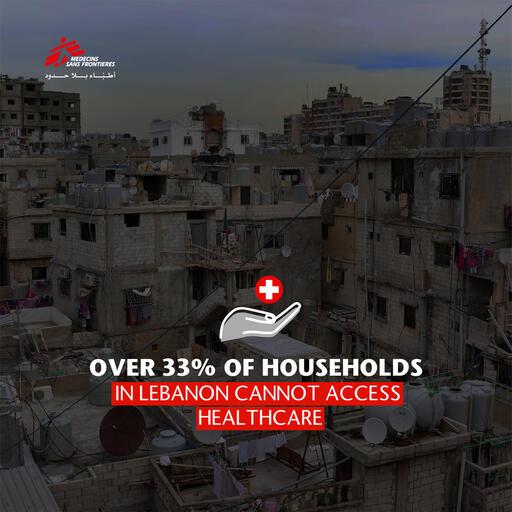
Shatila refugee camp that runs only 4 kilometers away from downtown Beirut on February 5th, 2018 © Elisa Fourt/MSF.
3. What is the impact of the economic crisis on refugees and migrants?
The economic crisis in Lebanon has disproportionately affected refugees and migrant workers residing in the country. These communities were already living in challenging conditions, and the crisis has only exacerbated their vulnerability.
Syrian families, who initially sought stability and security in Lebanon, now struggle to meet even their basic needs, with nine out of 10 relying on humanitarian assistance to survive. While humanitarian aid is needed more than ever, funding of aid targeting Syrian refugees’ population has dwindled in recent years. A striking example of this was UNICEF decreasing its supply of clean water from 30L to 7L (back to 20L recently) per person just weeks before the cholera outbreak in Lebanon. Consequently, MSF teams have witnessed a troubling surge in skin infections since the beginning of the year, highlighting the dire living conditions.
Simultaneously, Lebanon’s economic and political impasse have brought about a concerning rise in anti-refugee sentiment. Discriminatory measures, heightened surveillance, and restricted human rights have become commonplace for Syrian refugees.
4. What about the recent cholera outbreak?
Lebanon had been free of cholera for three decades until the recent outbreak in 2022, making its resurgence a clear signal of deteriorating living conditions.
Cholera is a disease that spreads primarily due to the lack of clean water and proper sanitation. Its resurgence in Lebanon after decades of being non-endemic is a stark indicator of the failing infrastructure within the country.
5. How is MSF responding?
MSF has maintained a continuous presence in Lebanon since 2008, ensuring access to free healthcare for the most vulnerable communities, including Lebanese citizens, displaced populations, and migrant workers.
MSF has a total of six primary healthcare clinics across the north, northeast of the country, and Beirut including a birth centre in Rafik Hariri University Hospital (RHUH) in Beirut. Healthcare services span from reproductive health support and mental health services to the treatment of non-communicable diseases and routine vaccinations for children.
In addition, our strategy involves strengthening the capacities of healthcare providers at both local and national levels, aligning with our vision of fostering a sustainable, long-term response. This entails extensive staff training, the donation of vital medicines, incorporating mental health and social work services into these healthcare facilities, medical supplies, and the initiation of capacity-building programs for a diverse range of healthcare facilities throughout Lebanon. Additionally, we are partnering with local organisations to amplify community-led initiatives to address the rapidly evolving needs.
